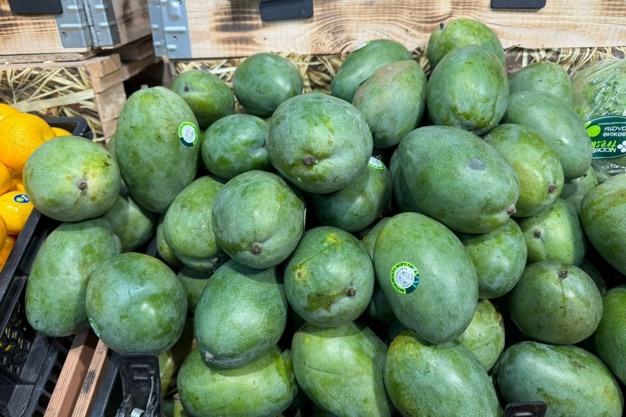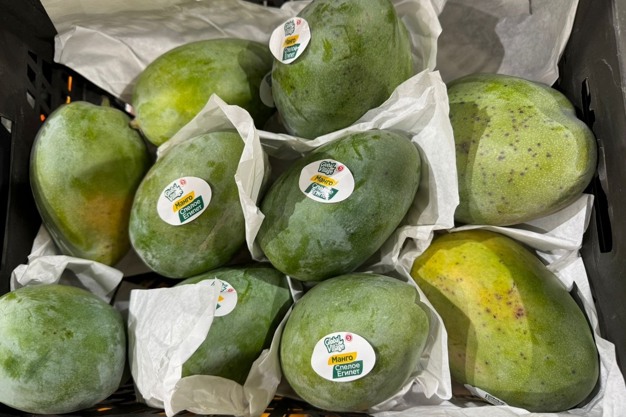In the face of global sanctions and continued conflict, shipping product into a country such as Russia is a challenge to say the very least. After all, shipments of agricultural products to Russia have changed significantly since 2008. It was then that Fresh Yagoda, a Los Angeles-based wholesaler, was founded and began shipping product to Russia focusing on exotic fruits and berries. Today, along with its offices in the U.S. and Russia, the company also has offices in Costa Rica and Dubai, supplying both major and secondary retailers throughout the Russian Federation.
Of course, shipping and economic sanctions have been a reality in supplying product to Russia, and in 2014, following the start of the Russian-Ukrainian war, the company had to contend with Russia-issued sanctions to the U.S. and the European Union, Ukraine, and other countries, on agriculture products. "However the U.S. never restricted the movement of food and medicine to Russia so we were able to continue operating freely," says David Levy, managing director of Fresh Yagoda. "Though a lot of changes have happened since then."

2022 developments
Especially in 2022 when that war escalated and brought about a second wave of sanctions on the shipment of goods but also economic sanctions in the form of bank restrictions, insurance restrictions, and more. "A lot of our suppliers were scared because they weren't sure if they would get paid. It was a bigger challenge from 2022 onwards," says Levy. "A lot of companies operating on the market exited the market and we filled in the void and continued to operate direct to retail."
Challenges that still continue for Fresh Yagoda include ensuring that suppliers and shippers feel confident to ship into the region. "More than anything, there was social responsibility that a lot of people understood," says Levy, noting that in 2022, the U.S. Department of Treasury and its Office of Foreign Assets Control (OFAC) clarified that it was not sanctioning the flow of agricultural goods into Russia. "That was reassuring for us," says Levy. "We have staff and relationships out there so we were able to develop a new system to ensure that our growers and suppliers felt confident about supplying product."
Levy says that Russia is an important market for many growers. "There's a lot of criteria that both the U.S. and the EU have as far as specifications on product coming into the country. In Russia, they also have requirements, but they are also a bit more lenient," says Levy. "A lot of growers are scared to enter this market but it's a growing and important market. Politics aside, there is a global social responsibility to make sure that food and medicine continue to come into the country."

The shift in logistics
While it has been shipping product into Russia for so many years now, the logistics of getting product into the country are still not easy. "A lot of logistics companies have stopped operating to Russia. We needed to find new ways of logistics and new ports to ship from," he says. "That was a very big challenge but now that we're almost three years into this, communication has been very key. We meet at all the major trade shows with our logistics partners, our retailers, and key players to ensure that we don't have a void as far as logistics are concerned."
Right now, Fresh Yagoda is shipping mangoes from Peru into Russia. "There's an abundance of product compared to last season when there was almost no product," says Levy. "This year they have a surplus and the market is very competitive."
As for demand, it's not quite meeting all of the supply that is available and Peruvian mango demand is also competing with Brazilian mangoes being shipped into the country. "I've got different suppliers calling me and asking if I can take product because there's so much out there," says Levy. That said, the demand that is there is steady and year-round for mangoes and he also adds that some wholesalers are now bringing in extra volume ahead of the holidays.
Year-round mango supply
Currently, the Kent mango is shipping in four-kilo boxes directly to retailers and Fresh Yagoda is sending several containers a week. Following Peru, the company also ships product into Russia from South Africa, Senegal, Egypt, and other growing regions so it can offer a regular 52-week program throughout the year.
This is creating a very different picture on pricing compared to this time last year when product from Peru was severely lacking. "Last year, pricing was fairly high on the little bit of product being exported. This season, pricing has already adjusted twice since we started, given the amount of product available," says Levy.
 For more information:
For more information:
David Levy
Fresh Yagoda Group
Tel: +1 (818) 692-6298
[email protected]
www.freshyagoda.com










